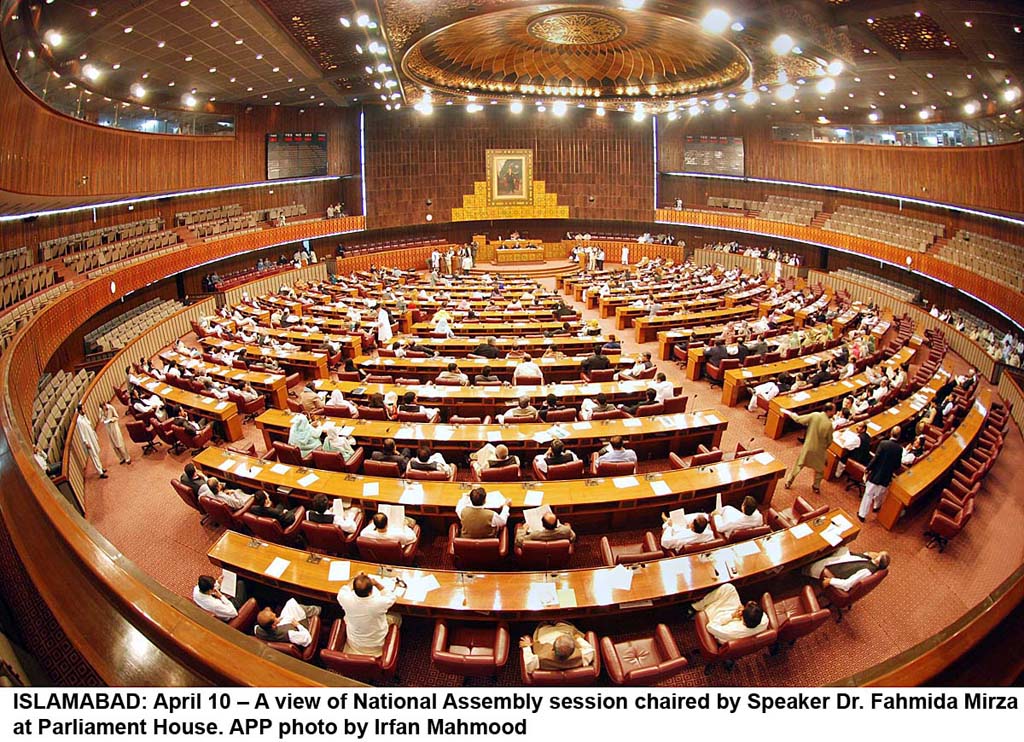
It was decided in a meeting of parliamentary leaders, chaired by Speaker Ayaz Sadiq, that the number of seats for Punjab will decrease by nine, which will add to the strength of Balochistan and Khyber Pakhtunkhwa, while an additional seat would be allocated to Islamabad.
The re-composition of the National Assembly was necessary after the census 2017.
“The number of seats will remain the same. There will be a change in the allocation of seats for the provinces,” Sadiq told reporters after the meeting.
Punjab will cede nine seats, including seven general and two reserved for women. Of the nine seats, four general seats and one reserved for women will go to Khyber Pakhtunkhwa while Balochistan will see an increase of two general seats and one for women.
There will be one additional seat for the Islamabad Capital Territory while Sindh and the Federally-Administered Tribal Areas (Fata) will see no change to their strength. Currently, the ICT has two seats which would now become three.
ECP gives government seven days to amend Constitution
All this means the lower house will keep its 272 general seats. There are 60 seats reserved for women and 10 for minorities which are allocated to the parties according to their strength in the house after general election.
Speaking to the media, the speaker elaborated that the parliamentary leaders have decided in principle to retain the seats of the National Assembly. He said the data for delimitation at tehsil level would be received on Wednesday (today) and another meeting would be held.
“All agree that the seats should not be increased,” the speaker said. “The number of seats for Punjab will decrease, K-P and Balochistan will see an increase, and an additional seat would be allocated to Islamabad,” he added.
He said the decision was taken after knowing the time constraints faced by the Election Commission of Pakistan (ECP) for preparing for the general election due next year. “We want election to be held on time,” he said.
On Thursday (tomorrow), legislation for delimitation would be made in the National Assembly which will then be passed on to the Senate, he said, adding: “We are trying to get it done by Friday, and will then present it [bill] in the Senate.”
Sadiq said the Muttahida Qaumi Movement-Pakistan (MQM-P) wanted delimitation of constituencies on the basis of number of votes instead of population. However, it was decided that the delimitation would be made in accordance with the population.
Transgender people 'disturbingly' undercounted in recent census
MQM-P leader Dr Farooq Sattar said his party reluctantly agreed to the proposal despite having reservation on it. He added that his party reserved the rights to challenge these developments at any appropriate forum.
Opposition leader Syed Khursheed Shah of the Pakistan Peoples Party (PPP) told reporters after the meeting that ECP officials had made it clear that if the legislation for delimitation was not enacted within a week, it would be difficult for them to hold election on time.
According to Shah, the Pakistan Bureau of Statistics (PBS) believes there would be a difference of around 2% in the provisional and final census results. Since final results are still being compiled, a constitutional amendment was needed for delimitation on the basis of the provisional census results.
The meeting was also attended by Shah Mahmood Qureshi of the Pakistan Tehreek-e-Insaf (PTI), Akram Durrani of the Jamiat Ulema-e-Islam-Fazl (JUI-F), Mehmood Khan Achackzai of the Pakhtunkhwa Milli Awami Party (PkMAP) and others.
1725354252-0/Untitled-design-(5)1725354252-0-405x300.webp)
1732099866-0/adele-(3)1732099866-0-165x106.webp)





1721801554-0/BeFunky-collage]-(10)1721801554-0-270x192.webp)

1732099821-0/BeFunk_§_]__-(14)1732099821-0.jpg)







COMMENTS (4)
Comments are moderated and generally will be posted if they are on-topic and not abusive.
For more information, please see our Comments FAQ